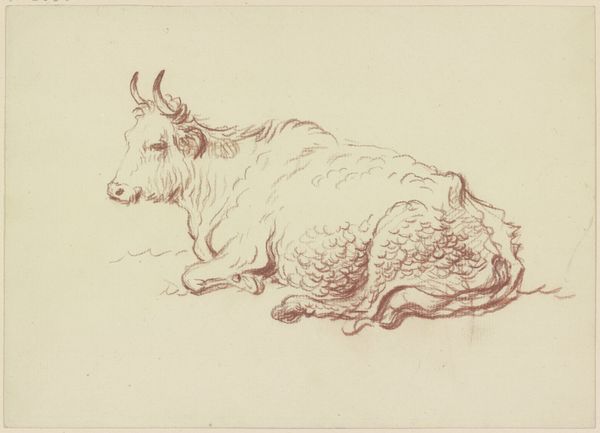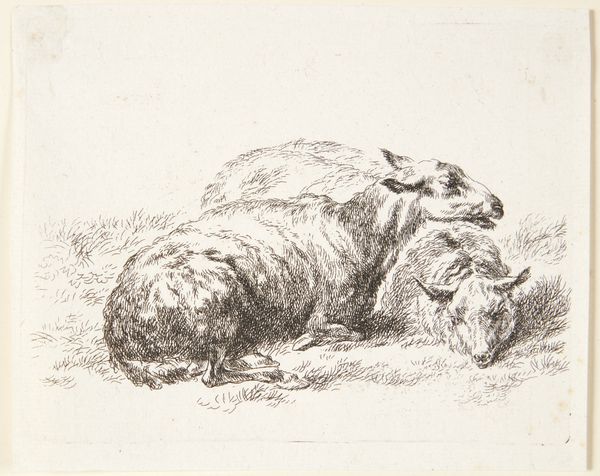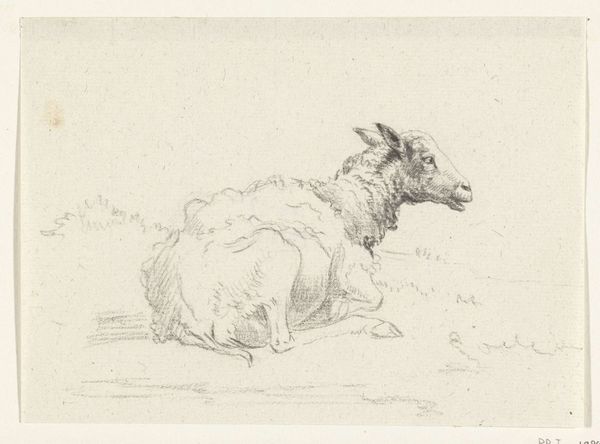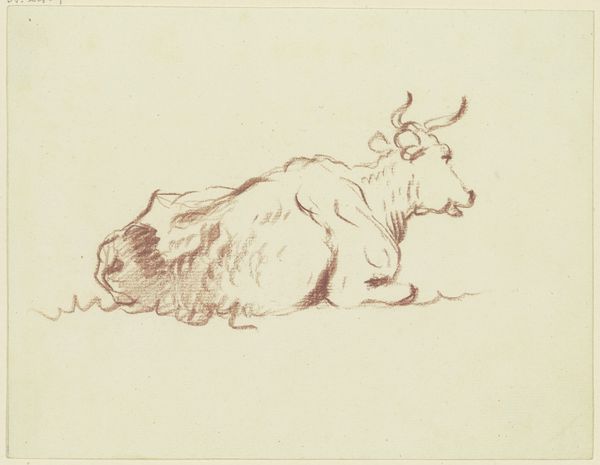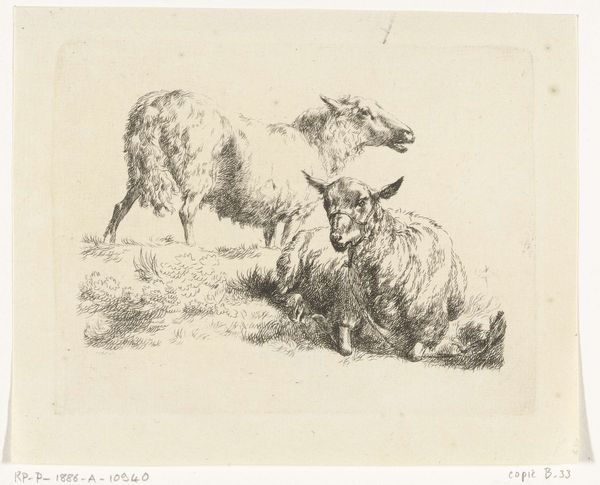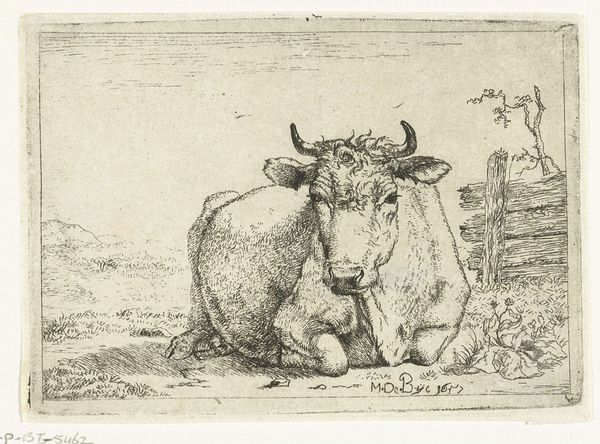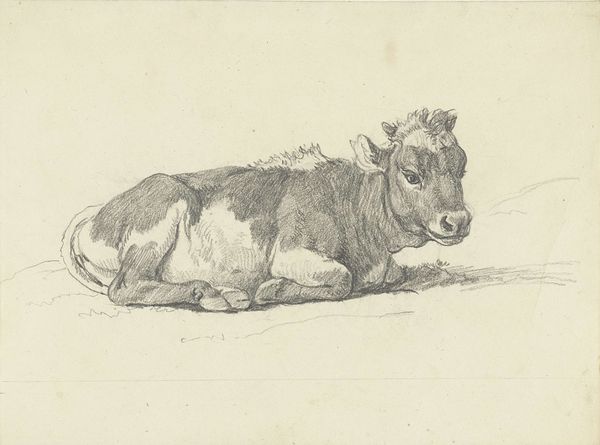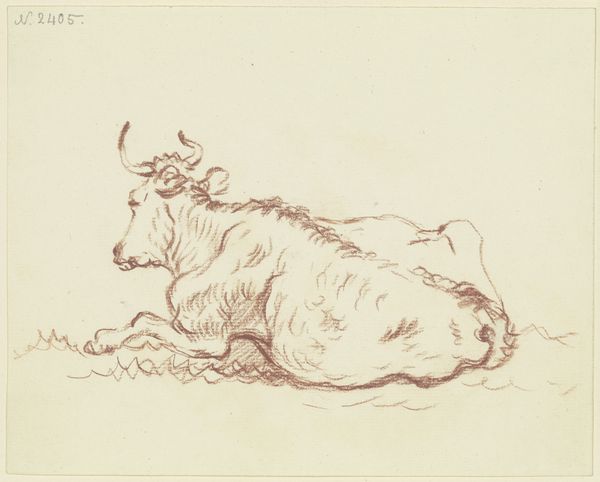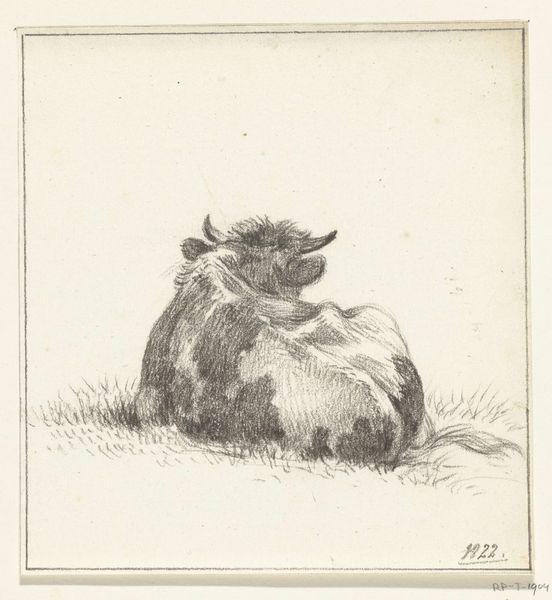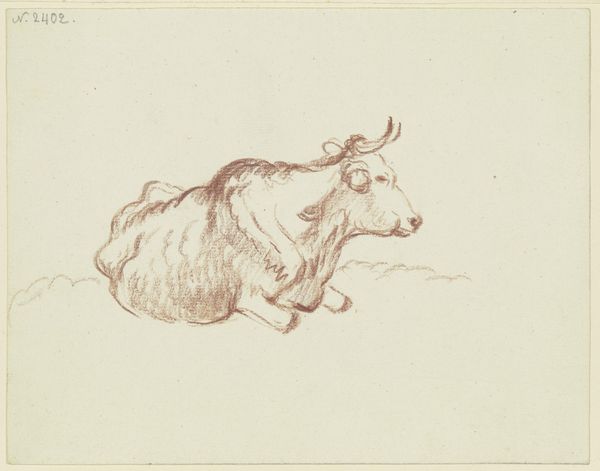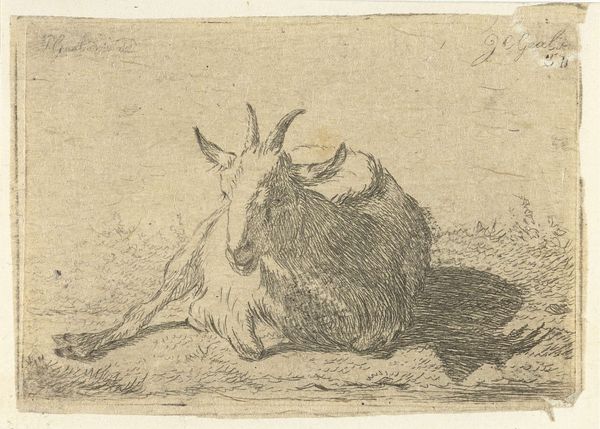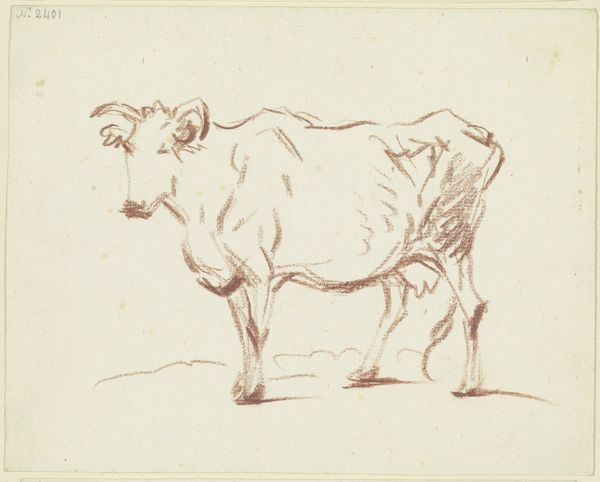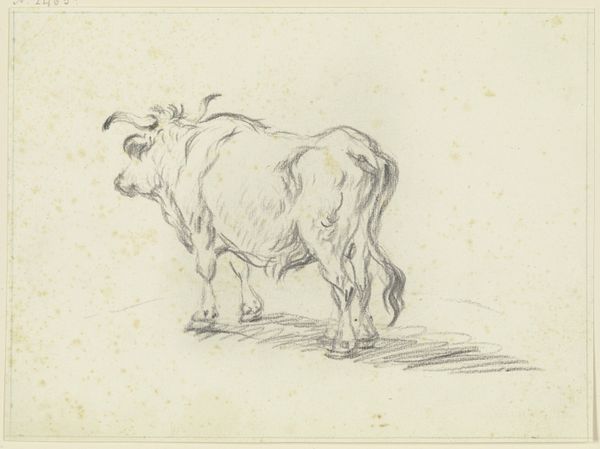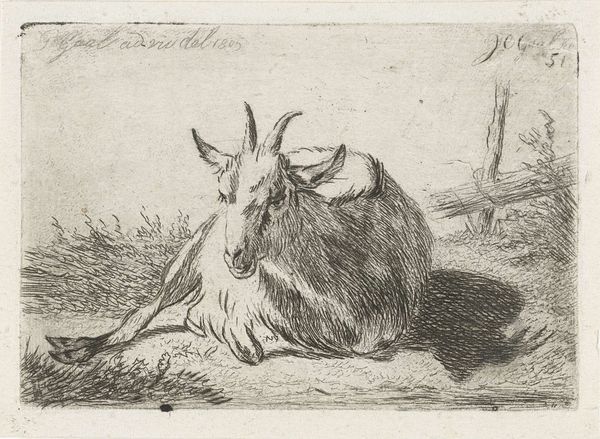
drawing, print, etching, paper, ink
#
drawing
#
light pencil work
#
ink drawing
#
quirky sketch
#
animal
# print
#
pen sketch
#
etching
#
pencil sketch
#
paper
#
personal sketchbook
#
ink
#
ink drawing experimentation
#
pen-ink sketch
#
sketchbook drawing
#
sketchbook art
#
realism
Dimensions: height 65 mm, width 77 mm
Copyright: Rijks Museum: Open Domain
Curator: Look at this small, rather unassuming etching titled "Liggend schaap van voren" by Ernst Willem Jan Bagelaar, dating from between 1798 and 1837. Editor: There's a certain melancholic air about this resting sheep. The pen strokes capture this stillness, a quiet introspection. Is it the beginning of the work day or the end? It could evoke varied symbolism of humility and quiet suffering...or plain contentment with existence. Curator: Given its creation in the late 18th-early 19th century, think about land ownership and agricultural labor during that period, with deep class divisions. Farm animals often signified economic dependency, especially within the peasant class. Can we see how the figure of a resting sheep symbolizes wider socio-economic injustices of agrarian life in that era? Editor: That's a compelling frame! It is impossible to forget the Christian iconographic use of the Lamb, an enduring symbol of sacrifice and innocence that became prevalent throughout Europe. This rather earthy, naturalistic rendition steers away from those highly mannered portrayals of piety. Curator: Interesting! And I also wonder how gender norms played out through animal depictions, with "masculine" traits sometimes aligned to laboring animals and "feminine" traits to domestic or decorative ones. A sheep seems neutral ground. But if we apply a gendered lens, we see… Editor: Wait...Let's pull back for a second. Is the intent always necessarily about some heavy symbolic load? What about just the humble pursuit of rendering nature, observing this animal in its most unassuming state of repose. An innocent recording. Not everything needs to become a social critique, necessarily. Curator: Agreed; this doesn't have to only embody heavy social significance. We have to allow space for the plainness, the everyday-ness, without forcing interpretation. The tension itself is productive. Editor: Indeed! It provides food for thought...this piece will sit with me. The symbolism it evokes might just change throughout the day.
Comments
No comments
Be the first to comment and join the conversation on the ultimate creative platform.
